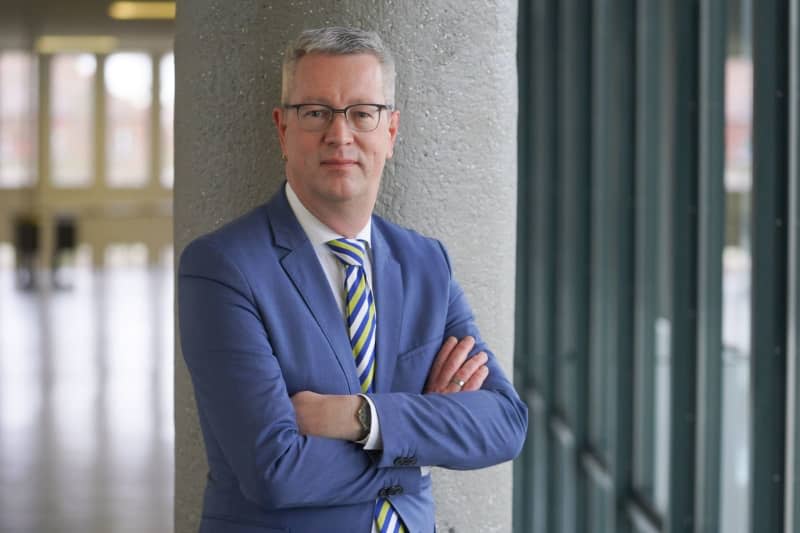Berlin university bans suspect in Jewish student attack from campus

Berlin's Free University (FU) announced on Friday that it is banning for three months the suspect of an attack on a fellow FU student who is Jewish to protect the campus community.
"In view of the offence, the suspect would be perceived as a threat on the university campus," FU President Günter Ziegler said in a statement.
"In order to protect the members of the university and to safeguard the peace of the university, the ban that has now been imposed for an initial period of three months is indispensable."
The ban can be extended. Online teaching formats are not affected by the university's decision, the FU said.
Jewish FU student Lahav Shapira was hospitalized last weekend with broken bones in his face. A 23-year-old pro-Palestinian fellow student, who is German, is said to have punched and kicked him on a street in Berlin-Mitte.
The public prosecutor's office is assuming a targeted attack and an anti-Semitic background. The case has been shaking up the city for days and is also putting pressure on FU's management
The Central Council for Jews in Germany called on the FU to expel the student, but the university has said it cannot do so under German law.
Ziegler expressed his horror after the attack. There are some 40,000 people from 150 countries at the FU with various ethnic and religious affiliations who study, teach, research and work at the university, it said.
"This diversity characterizes the university's self-image," the FU said. "Humanity, respect and tolerance are the cornerstones of our community. Anti-Semitism in any form, racism and discrimination are not tolerated."
The FU's actions, announced Friday afternoon, came after a silent protest at the FU with some 100 participants organized by the Fridays for Israel group earlier in the day highlighted the fears of Jewish students.
Green Party chairwoman Ricarda Lang, former Green Party politician Volker Beck and Ottilie Klein from the conservative opposition Christian Democratic Union (CDU) attended the protest.
Speaking on the sidelines of the protest, Lang said that it was "a signal against looking the other way." It was important to take consistent and lasting action against all forms of anti-Semitism, she said.
Beck, who is president of the German-Israeli Society, also called on politicians to take action. For example, it must become legally possible to take perpetrators of violence off the university register if necessary, he suggested.
The Fridays for Israel group has been highlighting Jewish students' concerns for weeks, spokeswoman Clara von Nathusius told dpa.
FU management had "missed a lot of things," von Nathusius said. Only since the recent attack on Shapira had there "really been a change in the university management's tone."
FU President Ziegler told broadcaster RBB's radioeins radio on Friday that it was not easy to get a grip on the current conflict at the university.
The Friday FU protest came after pro-Palestinian activists disrupted a panel discussion about law in a constitutional democracy so severely on Thursday that it had to be cancelled.
International active and former judges had been invited to the event, including Daphne Barak-Erez, professor and judge at the Israeli Constitutional Court.
According to the Humboldt University and the Hertie School, which jointly sponsored the event, one person stood up during the event to read out a statement. However, when the speakers on stage tried to respond, they were "disturbed by loud and continuous shouting from individuals."
Representative of both schools criticized the activists' actions on Friday in a joint press release.
"I find it shameful towards the guests we invited to an important discussion that it could not take place as planned," said Julia von Blumenthal, president of Humboldt University.
At the university, "even extremely controversial positions must be able to be discussed."
However, this is only possible if people listen to each other. "There was no willingness on the part of the activists to do this today."
Cornelia Woll, president of the Hertie School, said if discussions can only take place in closed rooms under strict security conditions, this would not only lead science but also democracy to a dead end.

